Another truly generous person is Keng, a teachum from Singapore. He has sent Lei and me box after box of carefully-packaged and selected cakes that he has bought from his (apparently superbly stocked) local pu'ercha vendor, with nothing more than a desire to share tea and to talk about cakes. The sheer quantity of tea, ranging from 1995 to 2007, and the care with which it is picked, is entirely flabbergasting.
When unpacking our collection the other day, I came across a cake from Keng that had slipped through our fingers, and which we hadn't yet tried:
"Chagu Leyou"
I'm often quite hard on 6FTM, because, like modern CNNP, they seem to have produced very low-quality, mainstream cakes over the past few years. However, something at 6FTM has definitely changed, because their earlier output is as different from their recent cakes as night from day.
Note above, the traditional-style wrapper, with large characters surrounding the factory logo. It is rustic, simple, and informed by the conventional "zhongcha" wrapper style. This cake was made before 6FTM shifted their focus into a more "modern" approach, which happened somewhere in the interval of 2004 - 2006.
Thick and chunky, this is fat bingcha
Pictured above and below, the large, delicious leaves of the cake couldn't be more different from today's androgynous, chopped melange. While chopped leaves feature regularly in older cakes from other producers, 6FTM used to make big-leaf cakes like this. Keng has kindly provided several examples of the genre, but this Youle is one of the most striking.
Easily separated leaves of all grades
The cake is an excellent blend of good shengpu leaves, properly aged into a rich, darker brown, with some copper-tinted tips. There are a few heavier leaves mixed in, which is something that I consider to be an advantage: an eclectic blend of leaves from tips to base can make for an interesting, varied tea, without the need to bring in leaves from other mountains. It's an excellent way to keep a single-mountain cake lively and engaging.
Dark, rich, with a very decent woody aroma attest to proper aging
It brews a rich, dark orange. Correspondingly, the feeling is woody and clean, but with plenty of sharpness and liveliness to keep things interesting (and to remind us that this cake could very easily improve further, given another eight years). My mouth waters long after the swallow, as the sweetness grips hold of the tongue and squeezes tightly.
Eminently quaffable
It is on the simpler side, and yet it is aged so properly, and comforts the stomach so well, that its £20 price-tag looks like a huge bargain. I'd be happy to make this charming, woody tea a regular guest at our tea-table.
As always, thanks again to Keng for a mighty fine tea session.
P.s. Always slow on the uptake, I recently came across an excellent blog from another UK-based drinker. If you haven't visited yet, have a peek; I've been busily consuming the past year's worth of posts that slipped under my radar:
P.s. Always slow on the uptake, I recently came across an excellent blog from another UK-based drinker. If you haven't visited yet, have a peek; I've been busily consuming the past year's worth of posts that slipped under my radar:
Addendum
September, 2013
The day after the happy chaos of my eldest son's three-year birthday party, I sat down at the tea table for a session with this reliable old tea, surrounded by balloons...
Recalling that this tea has entered the "stable, woody" zone, I felt confident in using lots of leaves. The result has a heavy, dense soup (pictured above) that had the long-lasting sweetness of sharp, but welcoming, rosewood. In the dense, red humidity is a complex character of old fruits: apricots, plums, and so on. It requires long brews after the third infusion, and is impossible to overbrew, suggesting that it is not the world's most potent tea, but it is comforting and continues to impress. Certainly, for £20, it far exceeds expectations and is a delight to revisit.

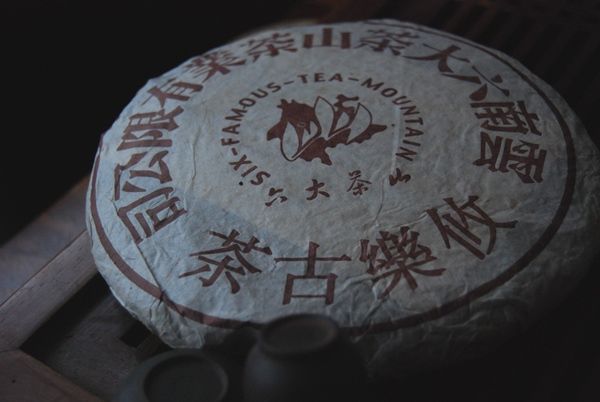
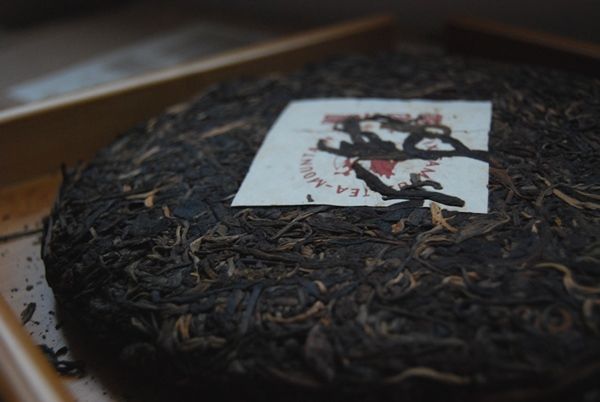
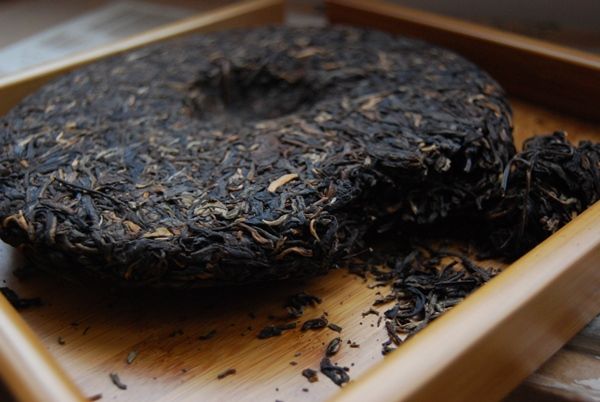
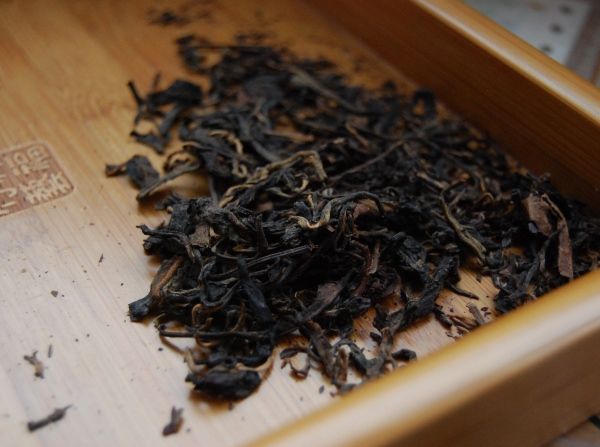
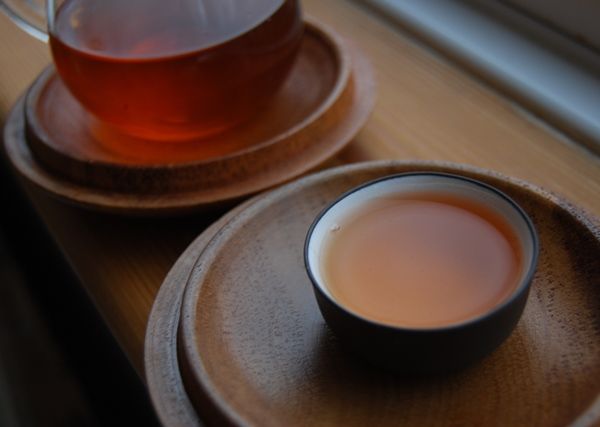
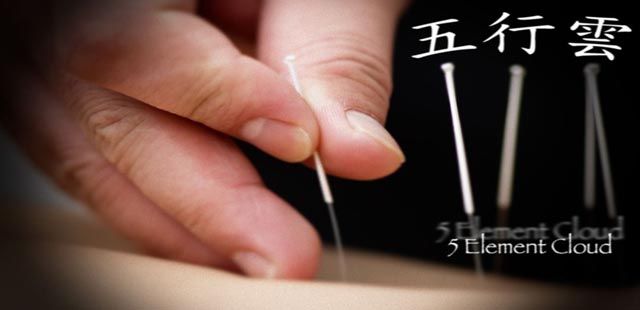
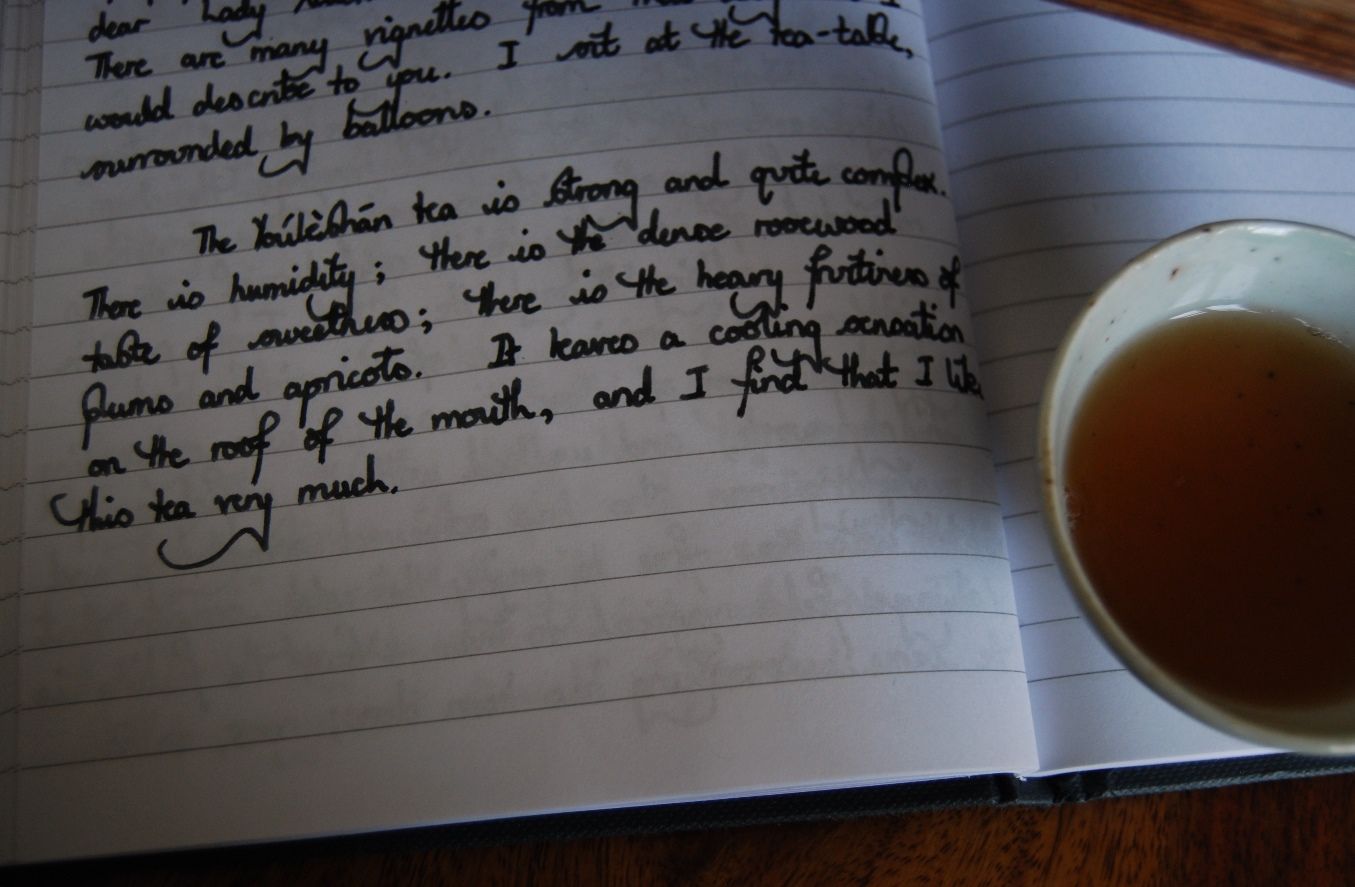
2 comments:
Hi,
Best wishes to you, Lei and Little Tiger for the New Year. Thanks for making this puerh tea your first review for 2011. It have been rather dull for the past months with your absence. When the weather in UK is better, you can expect a few more puerh tea that I have accumulated during the past months for your tasting.
Regards,
Keng
Happy New Year!
Lei and I have just been planning what to send you, in fact... :)
Toodlepip,
Hobbes
Post a Comment